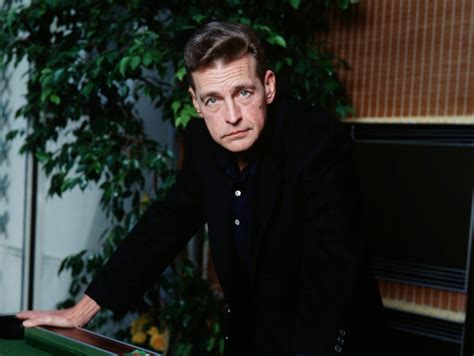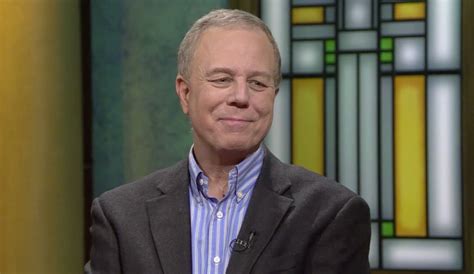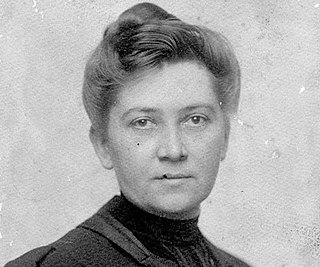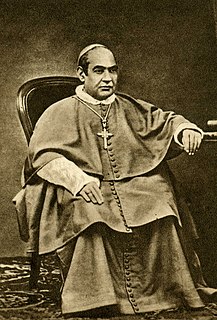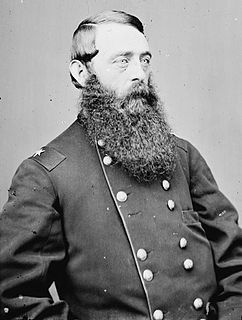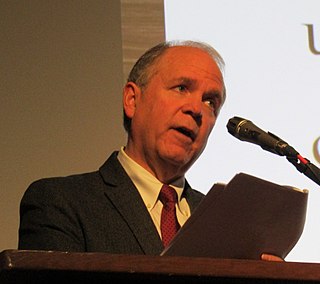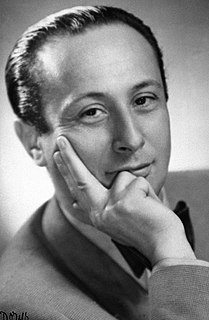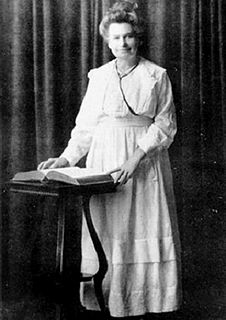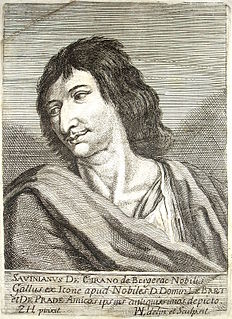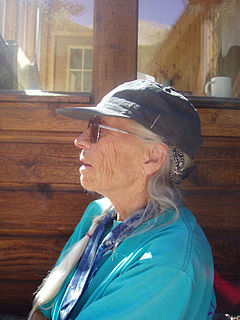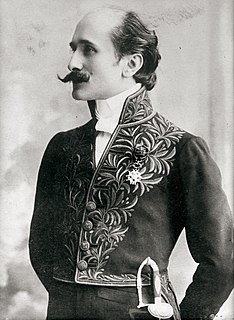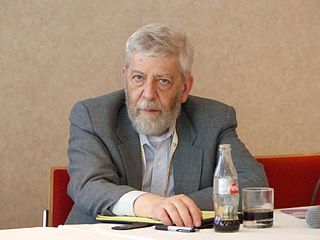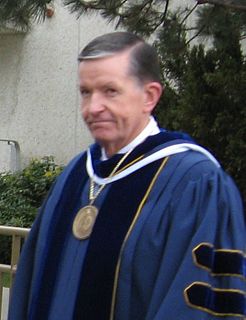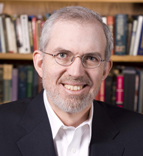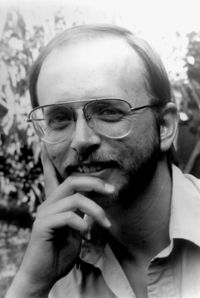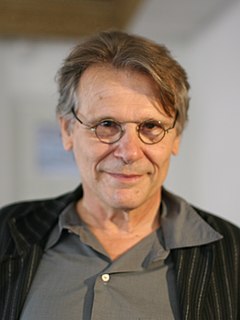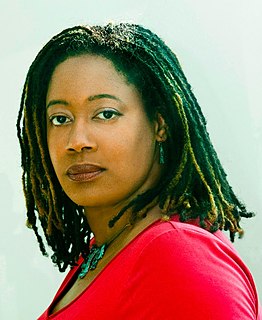Top 1184 Mortal Kombat Quotes & Sayings - Page 19
Explore popular Mortal Kombat quotes.
Last updated on October 7, 2024.
The first man . . . ventured to call food and nourishment the parts that had a little before bellowed and cried, moved and lived. How could his eyes endure the slaughter when throats were slit and hides flayed and limbs torn from limb? How could his nose endure the stench? How was it that the pollution did not turn away his taste, which made contact with the sores of others and sucked juices and serums from mortal wounds?
When a mortal man speaks anything of that eternal blessedness of the saints in glory, he is like a blind man discoursing about the light which he has never seen, and so cannot distinctly speak anything concerning it. He also said that "In a way it is akin to a man writing a travel guide for a land he has never visited or seen. It is to attempt to describe the indescribable with words which cannot come close to expressing the glory of heaven.
When I started this song I was still thirty-three The age that Mozart died and sweet Jesus was set free Keats and Shelley too soon finished, Charley Parker would be And I fantasized some tragedy'd be soon curtailing me Well just today I had my birthday I made it thirty-four Mere mortal, not immortal, not star-crossed anymore I've got this problem with my aging I no longer can ignore A tame and toothless tabby can't produce a lion's roar.
Many animals even now spring out of the soil, Coalescing from the rains and the heat of the sun. Small wonder, then, if more and bigger creatures, Full-formed, arose from the new young earth and sky. The breed, for instance, of the dappled birds Shucked off their eggshells in the springtime, as Crickets in summer will slip their slight cocoons All by themselves, and search for food and life. Earth gave you, then, the first of mortal kinds, For all the fields were soaked with warmth and moisture.
Steiner has here transformed the vaporous conceptions of his life, the vapors of what never was and never will be, from their aeriform state to a fine and ethereal substantiality. My Unwritten Books is a gathering of shades, an elegant and eloquent gathering of mind, feeling, and autumnal passion. (...) And that is the lovely irony of this unique little book. None of these unwritten books should have been written. They are better here, as they are, untamed and errant phantoms of a brilliance whose emanations no one mortal lifetime could ever accommodate in full.
The genuinely significant creation, whether an idea, or a work of art, or a scientific discovery, is most likely to be seen at first as erroneous, bad, or foolish. Later it may be seen as obvious, something self-evident to all. Only still later does it receive its final evaluation as a creative contribution. It seems clear no contemporary mortal can satisfactorily evaluate a creative product at the time it is formed, and this statement is increasingly true the greater the novelty of the creation.
I reminded myself: when a book lies unopened it might contain anything in the world, anything imaginable. It therefore, in that pregnant moment before opening, contains everything. Every possibility, both perfect and putrid. Surely such mysteries are the most enticing things You grant us in this mortal mere -- the fruit in the garden, too, was like this. Unknown, and therefore infinite. Eve and her mate swallowed eternity, every possible thing, and made the world between them.
Ironically, the single thing that has strengthened Iran over the last several years has been the war in Iraq. Iraq was Iran's mortal enemy. That was cleared away. And what we've seen over the last several years is Iran's influence grow. They have funded Hezbollah, they have funded Hamas, they have gone from zero centrifuges to 4,000 centrifuges to develop a nuclear weapon.
Myth was regarded as primary; it was concerned with what was thought to be timeless and constant in our existence. Myth looked back to the origins of life, to the foundations of culture, and to the deepest levels of the human mind. Myth was not concerned with practical matters, but with meaning. Unless we find some significance in our lives, we mortal men and women fall very easily into despair. The mythos of a society provided people with a context that made sense of their day-to-day lives; it directed their attention to the eternal and the universal.
I don't know if God exists and I don't care. God's will and design for this temporal and spatial vastness, if any, is so patently, deliberately impenetrable that I doubt any mortal has a grasp on it. The very inexplicability of sad events like the tsunami, like the AIDS crisis or even like the cancer death of the father of one of my daughter's 2nd-grade classmates last week are, to me, reminders to focus on our obligations to one another, not to the infinite; to honor the creator, if any, by honoring creation itself and hoping that's good enough.
As I have grown older I am more and more convinced that I have not grown up, that my powers have not come to me, not my real wisdom to do and achieve the right thoughts. I lack some dear grace. I cannot seem to steady down and get the single eye. There is a curriculum in living in which I have not studied. This may be happiness. I want to know it; I should feel better prepared for immortality. I do not wish to arrive fagged at last and a bit slipshod in the spirit, as if I had a hard time all my mortal life. It is not complimentary to God.
Farewell sweet earth and northern sky, for ever blest, since here did lie and here with lissom limbs did run beneath the Moon, beneath the Sun, Lúthien Tinúviel more fair than Mortal tongue can tell. Though all to ruin fell the world and were dissolved and backward hurled; unmade into the old abyss, yet were its making good, for this - the dusk, the dawn, the earth, the sea - that Lúthien for a time should be.
When you see a condemned man on his way to the gallows, it moves you to pity. If you could do something to free him, you would do it. Well, brothers and sisters, when I see a person in mortal sin, I see someone drawing nearer with every step to the gallows of hell. And seeing him in this unhappy state, I happen to know the way to free him: that he be converted to God, ask God's pardon, and make a good confession. Woe betide me if he does not.
Let us be mindful of the foundational precepts our Heavenly Father has given to His children that will establish the basis of a rich and fruitful mortal life with promises of eternal happiness…. Brothers and sisters, diligently doing the things that matter most will lead us to the Savior of the world…. Let us make the changes necessary to refocus our lives on the sublime beauty of the simple, humble path of Christian discipleship—the path that leads always toward a life of meaning, gladness, and peace.
In every grave on earth's green sward is a tiny seed of the resurrection life of Jesus Christ, and that seed cannot perish. It will germinate when the warm south wind of Christ's return brings back the spring-tide to this cold sin-cursed earth of ours; and then they that are in their graves, and we who shall lie down in ours, will feel in our mortal bodies the power of His resurrection, and will come forth to life immortal.
If you stand right fronting and face to face to a fact, you will see the sun glimmer on both its surfaces, as if it were a cimeter, and feel its sweet edge dividing you through the heart and marrow, and so you will happily conclude your mortal career. Be it life or death, we crave only reality. If we are really dying, let us hear the rattle in our throats and feel cold in the extremities; if we are alive, let us go about our business.
The writings of latter-day prophets clearly teach that the sorrows and sufferings endured by Adam and Eve upon their leaving the Garden of Eden were ordained by God and were a necessary part of their-and our-earthly experience. President Howard W. Hunter, then a member of the Quorum of the Twelve Apostles, taught: "We came to mortal life to encounter resistance. It was part of the plan for our eternal progress. Without temptation, sickness, pain, and sorrow, there could be no goodness, virtue, appreciation for well-being, or joy."
And now I was lonelier, I supposed, than anyone else in the world. Even Defoe's creation, Robinson Crusoe, the prototype of the ideal solitary, could hope to meet another human being. Crusoe cheered himself by thinking that such a thing could happen any day, and it kept him going. But if any of the people now around me came near I would need to run for it and hide in mortal terror. I had to be alone, entirely alone, if I wanted to live.
At one time I was praying for the salvation of sinners, and the Saviour appeared on the cross by me, and talked with me; I laid my hand on his mangled body, and looked up in his smiling face. Another time I was meditating upon the love of God in giving his only Son to die for sinners, and of the beautiful home he was preparing for those who love him, and I seemed to float away, and was set down in the Beautiful City. Oh, the glorious sight that met my view can never be expressed by mortal tongue
Why should we care about the coup? First, because we depend on Yemen's government to support our drone war against another local menace, al-Qaeda in the Arabian Peninsula (AQAP). It's not clear if we can even maintain our embassy in Yemen, let alone conduct operations against AQAP. And second, because growing Iranian hegemony is a mortal threat to our allies and interests in the entire Middle East.
She is a mortal danger to all men. She is beautiful without knowing it, and possesses charms that she's not even aware of. She is like a trap set by nature - a sweet perfumed rose in whose petals Cupid lurks in ambush! Anyone who has seen her smile has known perfection. She instills grace in every common thing and divinity in every careless gesture. Venus in her shell was never so lovely, and Diana in the forest never so graceful as you.
And just for a moment I had reached the point of ecstasy that I always wanted to reach, which was the complete step across chronological time into timeless shadows, and wonderment in the bleakness of the mortal realm, and the sensation of death kicking at my heels to move on, wiht a phantom dogging its own heels, and myself hurrying to a plank where all the angels dove off and flew into the holy void of uncreated emptiness, the potent and inconceivable radiancies shining in bright Mind Essence, innumerable lotus-lands falling open in the magic mothswarm of heaven. - Sal Paradise
Powder snow skiing is not fun. It is life, fully lived, life lived in a blaze of reality. What we experience in powder is the original human self, which lies deeply inside each of us, still undamaged in spite of what our present culture tries to do to us. Once experienced, this kind of living is recognized as the only way to live — fully aware of the earth and the sky and the gods and you, the mortal, playing among them.
Well," he said, clearly enjoying my confusion. "It was actually for two souls, since you and Seth were both saved. But even if it wasn't, it still would've been worth it. Do you know the price of one soul, Georgina? It's beyond rubies and diamonds, beyond any mortal reckoning. If it had taken me centuries, if it had taken a dozen more angels to help me, it all would have been worth it.
If, in looking at the lives of princes, courtiers, men of rank and fashion, we must perforce depict them as idle, profligate, and criminal, we must make allowances for the rich men's failings, and recollect that we, too, were very likely indolent and voluptuous, had we no motive for work, a mortal's natural taste for pleasure, and the daily temptation of a large income. What could a great peer, with a great castle and park, and a great fortune, do but be splendid and idle?
Letting go all else, cling to the following few truths. Remember that man lives only in the present, in this fleeting instant: all the rest of his life is either past and gone, or not yet revealed. This mortal life is a little thing, lived in a little corner of the earth; and little, too, is the longest fame to come - dependent as it is on a succession of fast-perishing little men who have no knowledge even of their own selves, much less of one long dead and gone.
When we unravel the theological tomes of the ages, the makeup of God becomes quite clear. God is a human being without human limitations who is read into the heavens. We disguised this process by suggesting that the reason God was so much like a human being was that the human beings were in fact created in God's image. However, we now recognize that if was the other way around. The God of theism came into being as a human creation. As such, this God, too, was mortal and is now dying.
The Savior desires to save us from our inadequacies as well as our sins. Inadequacy is not the same as being sinful - we have far more control over the choice to sin than we may have over our innate capacity. . . . A sense of falling short or falling down is not only natural but essential to the mortal experience. Still, after all we can do, the Atonement can fill that which is empty, straighten our bent parts, and make strong that which is weak.
Half-instructed confessors have done my soul great harm; for I could not always have such learned ones as I would have desired. They certainly did not wish to deceive me, but the fact was that they knew no better. Of something which was a venial sin, they said it was no sin, and out of a very grave mortal sin they made a venial sin. This has done me such harm, that my speaking here of so great an evil, as a warning to others, will be readily understood.
She is a mortal danger without meaning to be one; she's exquisite without giving ita thought; shes a trap set by nature, a rose in which love lies in ambush! Anyone who has seen her smile has known perfection. She creates grace without movement and makes all divinity fit into her slightest gesture. And neither Venus in her shell, nor Diana striding in the great, blossoming forest, can compare to her when she goes through the streets of paris in her sedan chair.
The one consistent policy running through this [Clinton] administration is the love it has lavished on Marxists -- food aid for North Korea, diplomatic recognition of the Hanoi regime, chronic kowtowing to Beijing and now doing Castro's dirty work. How can the Clinton gang -- which carried the Viet Cong flag during anti-war demonstrations and decorated their dorm rooms with pictures of Che Guevara -- not feel contempt for people who insist, with every fiber of their being, that communism is mankind's mortal enemy?
A hound it was, an enormous coal-black hound, but not such a hound as mortal eyes have ever seen. Fire burst from its open mouth, its eyes glowed with a smouldering glare, its muzzle and hackles and dewlap were outlined in flickering flame. Never in the delirious dream of a disordered brain could anything more savage, more appalling, more hellish be conceived than that dark form and savage face which broke upon us out of the wall of fog.
While my hand is on the stick, my feet on the rudder, and my eyes on the compass, this consciousness, like a winged messenger, goes out to visit the waves below, testing the warmth of water, the speed of wind, the thickness of intervening clouds. It goes north to the glacial coasts of Greenland, over the horizon to the edge of dawn, ahead to Ireland, England, and the continent of Europe, away through space to the moon and stars, always returning, unwillingly, to the mortal duty of seeing that the limbs and muscles have attended their routine while it was gone.
The aim of every artist is to arrest motion, which is life, by artificial means and hold it fixed so that a hundred years later, when a stranger looks at it, it moves again since it is life. Since man is mortal, the only immortality possible for him is to leave something behind him that is immortal since it will always move. This is the artist's way of scribbling "Kilroy was here" on the wall of the final and irrevocable oblivion through which he must someday pass.
Learn to recognize the false dawn from the true; distinguish the color of the wine from the color of the cup. Then it may be that patience and time may produce, out of the spectrum-viewing sight, true vision, and you will behold colors other than these mortal hues, you will see pearls instead of stones. Pearls, did I say? Nay more, you will become a sea, you will become a sun traveling the sky.
In these last few days, we were close because we were both mortal men. We saw the same sun and the same twilight, we felt the same pull of the earth beneath our feet. We drank together and broke bread together. We might have made love together, if you had only allowed such a thing. But that’s all changed. You have your youth, yes, and all the dizzying wonder that accompanies the miracle. But I still see death when I look at you. I know now I cannot be your companion, and you cannot be mine
When we begin to understand the magnitude of [the Messiah's] sacrifice and service to us individually and collectively, we then cannot consider anything else to be of more importance or to approach His significance in our lives. "For most of us, this understanding does not come all at once and likely will not be fully complete during our mortal sojourn. We do know, however, that as we learn line upon line, our appreciation for the Savior's contributions will increase and our knowledge and assurance of their truthfulness will grow.
We possess the Canon because we are mortal and also rather belated. There is only so much time, and time must have a stop, while there is more to read than there ever was before. From the Yahwist and Homer to Freud, Kafka, and Beckett is a journey of nearly three millennia. Since that voyage goes past harbors as infinite as Dante, Chaucer, Montaigne, Shakespeare, and Tolstoy, all of whom amply compensate a lifetime's rereadings, we are in the pragmatic dilemma of excluding something else each time we read or reread extensively.
Let us truly be a temple-attending and temple-loving people...We should not go only for our kindred dead, but also for the personal blessings of temple worship, for the sanctity and the safety that are within those hallowed and consecrated walls. As we attend the temple, we learn more richly and deeply the purpose of life and the significance of the atoning sacrifice of the Lord Jesus Christ. Let us make the temple, together with temple worship and temple covenants and temple marriage, our ultimate earthly goal and the supreme mortal experience.
His eyes softened. I thought maybe he pitied me, but it was something else. "Ultimately, it will be your burden to bear. It's always the Mortal who bears it. Trust me, I know." "I don't trust you and you're wrong. We aren't too different." "Mortals. I envy you. You think you can change things. Stop the universe. Undo what was done long before you came along. You are such beautiful creatures." He was talking to me, but it didn't feel like he was talking about me anymore. "I apologize for the intrusion. I'll leave you to your sleep.
I'm not worthy of that," I said. I might be human now, but I understand how powerful a heavenly creature Carter was. "I don't deserve that much regard." He reached out and tipped my chin up. "You do, Georgina. And if you don't believe me now, then strive to be. Live you life. Be kind. Love those you know. Love those you don't know. be worthy of your soul." A tear escaped, rolling down my cheek and probably messing up my mortal mascara. "Thank you, Carter. Thank you for everything.
Young man, two are the forces most precious to mankind. The first is Demeter, the Goddess. She is the Earth -- or any name you wish to call her -- and she sustains humanity with solid food. Next came Dionysus, the son of the virgin, bringing the counterpart to bread: wine and the blessings of life's flowing juices. His blood, the blood of the grape, lightens the burden of our mortal misery. Though himself a God, it is his blood we pour out to offer thanks to the Gods. And through him, we are blessed.
How many of us will be saved the pain of seeing the most important things in our lives disappearing from one moment to the next? I don't just mean people, but our ideas and dreams too: we might survive a day, a week, a few years, but we're all condemned to lose. Our body remains alive, yet sooner or later our soul will receive the mortal blow. The perfect crime - for we don't know who murdered our joy, what their motives were, or where the guilty parties are to be found...they too are the victims of the reality they created.
Members in the Commonwealth of God are not bound together by the specifics of their religion, for the nature of our interdependency does not require this. Rather we are bound by the shared recognition that when one person suffers, all suffer; when we violate one life, all lives are violated; when we pollute the earth, all living things are stained; when one nation threatens the security of another, it, too, becomes less secure; when we place the planet in mortal danger, we hazard the future of our own children as well as the children of our enemies.
What do you mean I have a predetermined death?” – Nick “Did I stutter?” – Death “No.” – Nick “Do I look like Webster’s?” – Death “No.” – Nick “Then you should understand what I said, since I didn’t speak in code. Every mortal creature is born with an expiration date. Some immortals, too. Set by the big clockmaker. But excessive stupidity and moronic tendencies can shorten it. Pissing me off is one really good way to cut yours down to three seconds from now.” – Death
Maybe love was no match for ice...but Piper had used it to wake a metal dragon. Mortals did superhuman feats in the name of love all the time. Mothers lifted cars to save their children. And Piper was more than just a mortal. She was a demigod. A hero. The ice melted on her blade. Her arm steamed under Khione's grip. 'Still underestimating me,' Piper told the goddess. 'You really need to work on that.
An adept of Kriya Yoga conquers death by taking the soul beyond identification with the physical body, consciously and at will; and then returning to the consciousness of the mortal form again. By this process, he experiences the body as merely the material dwelling place of the soul. He can remain therein as long as he wants; and after that body has fulfilled its usefulness, he can quit it at will without suffering physical pain or mental pain due to attachment, and enter his omnipresent home in God.
Trees have from time immemorial been closely associated with magic. These stout members of the vegetable kingdom may stand for as long as a thousand years, and tower far above our mortal heads. As such they are symbols and keepers of unlimited power, longevity, and timelessness. An untouched forest, studded with trees of all ages, sizes and types, is more than a mysterious, magical place - it is one of the energy reservoirs of nature. Within its boundaries stand ancient and new sentinels, guardians of the universal force which has manifested on the the Earth. . . .
We human beings build houses because we're alive but we write books because we're mortal. We live in groups because we're sociable but we read because we know we're alone. Reading offers a kind of companionship that takes no one's place but that no one can replace either. It offers no definitive explanation of our destiny but links us inextricably to life. Its tiny secret links remind us of how paradoxically happy we are to be alive while illuminating how tragically absurd life is.
Three Rings for the Elven-kings under the sky, Seven for the Dwarf-lords in halls of stone, Nine for Mortal Men, doomed to die, One for the Dark Lord on his dark throne In the Land of Mordor where the Shadows lie. One Ring to rule them all, One Ring to find them, One Ring to bring them all and in the darkness bind them. In the Land of Mordor where the Shadows lie.
Jesus Christ was the only one capable of performing the magnificent Atonement because He was the only perfect man and the Only Begotten Son of God the Father. He received His commission for this essential work from His Father before the world was established. His perfect mortal life devoid of sin, the shedding of His blood, His suffering in the garden and upon the cross, His voluntary death, and the Resurrection of His body from the tomb made possible a full Atonement for people of every generation and time.
Christ walked the path every mortal is called to walk so that he would know how to succor and strengthen us in our most difficult times. He knows the deepest and most personal burdens we carry. He knows the most public and poignant pains we bear. He descended below al such grief in order that he might lift us above it. There is no anguish or sorrow or sadness in life that he has not suffered in our behalf and borne away upon his own valiant and compassionate shoulders.
When I think of the Savior, I often picture Him with hands outstretched, reaching out to comfort, heal, bless, and love. And He always talked with, never down to, people. He loved the humble and the meek and walked among them, ministering to them and offering hope and salvation. That is what He did during His mortal life; it is what He would be doing if He were living among us today; and it is what we should be doing as His disciples and members of The Church of Jesus Christ of Latter-day Saints.
During our mortal schooling in submissiveness, we will see the visible crosses that some carry, but other crosses will go unseen. A few individuals may appear to have no trials at all, which, if it were so, would be a trial in itself. Indeed, if, as do trees, our souls had rings to measure the years of greatest personal growth, the wide rings would likely reflect the years of greatest moisture-but from tears, not rainfall.
The cumulative weight of all mortal sins--past, present, and future--pressed upon that perfect, sinless, and sensitive Soul! All our infirmities and sicknesses were somehow, too, a part of the awful arithmetic of the Atonement. (See Alma 7:11-12; Isa. 53:3-5; Matt. 8:17.) The anguished Jesus not only pled with the Father that the hour and cup might pass from Him, but with this relevant citation. 'And he said, Abba, Father, all things are possible unto thee; take away this cup from me.' (Mark 14:35-36.)
The Devil can so completely assume the human form, when he wants to deceive us, that we may well lie with what seems to be a woman, of real flesh and blood, and yet all the while 'tis only the Devil in the shape of a woman. 'Tis the same with women, who may think that a man is in bed with them, yet 'tis only the Devil; and...the result of this connection is oftentimes an imp of darkness, half mortal, half devil.
I remembered Nahadoth's lips on my throat and fought to suppress a shudder, only half succeeding. Death as a consequence of lying with a god wasn't something I had considered, but it did not surprise me. A mortal man's strength had its limits. He spent himself and slept. He could be a good lover, but even his best skills were only guesswork - for every caress that sent a woman's head into the clouds, he might try ten that brought her back to earth.
I think there's over-telling sometimes, in fiction. For instance, I'm a big fan of horror movies, but I could always lose the last third of them. There's the brilliant exciting scary thing that's going on, and then they have to show you the monster, and the monster turns out to be a giant spider from space and then you push it over and it's dead. It becomes mortal and it has human needs and it always sort of feels like a shame. Maybe because of all the cop shows and such, we're a generation that needs to have problems solved for us in fiction.
Oh, if you only knew what joy, what sweetness awaits a righteous soul in Heaven! You would decide in this mortal life to bear any sorrows, persecutions and slander with gratitude. If this very cell of ours was filled with worms, and these worms were to eat our flesh for our entire life on earth, we should agree to it with total desire, in order not to lose, by any chance, that heavenly joy which God has prepared for those who love Him.
There is a certain period of the soul-culture when it begins to interfere with some of characters of typical beauty belonging to the bodily frame, the stirring of the intellect wearing down the flesh, and the moral enthusiasm burning its way out to heaven, through the emaciation of the earthen vessel; and there is, in this indication of subduing the mortal by the immortal part, an ideal glory of perhaps a purer and higher range than that of the more perfect material form. We conceive, I think, more nobly of the weak presence of Paul than of, the fair and ruddy countenance of David.




